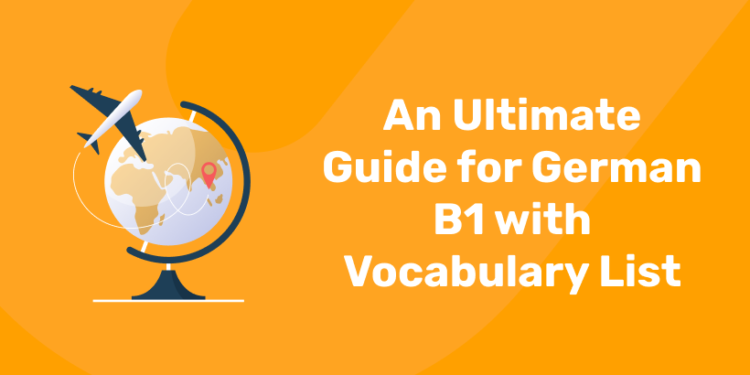Table of Contents
Introduction
German Vocabulary B1 is a level of exam to gauge the proficiency of aspirants or candidates in the language. The B1 level comes after the completion of the A1 and A2 levels. The level contains a set of words and expressions that are more nuanced and expansive than at the beginner level. The B1 level grants the learners a solid foundation in basic German grammar and allows them to participate in more complex conversations and texts. All of these levels are established by the Common European Framework of Reference for Languages (CEFR). Let us dive deeper into the aspects of the B1 vocabulary.
Master German with the B1 online learning course!
German B1 Vocabulary:
1: How do you say "Good Morning" in German?
-
Expanded Vocabulary Scope:
B1 vocabulary covers a wider range of topics beyond the everyday essentials. Learners begin to absorb words related to work, entertainment, travel, health, and more specialised fields.
-
Functional language skills:
Learners can handle a variety of everyday situations with a vocabulary that allows them to express opinions and preferences, make plans, and give explanations.
-
Integrated grammar:
Level B1 vocabulary is integrated into grammatical structures, allowing the formation of more complex sentences and the use of different tenses (past, present, future).
-
Idioms and colloquialisms:
Learners encounter and begin to use idioms and colloquialisms to add depth and authenticity to their spoken and written language.
-
Cultural and social context:
Vocabulary includes terms related to cultural practices, traditions, social norms, and current events, helping learners discuss and understand German culture in a more comprehensive way.
-
Technical and Professional Language:
Learners at level B1 begin to grasp technical and professional language related to specific areas of interest or study, enhancing their ability to communicate effectively in a professional context.
Click here to join the Entri online German language course! Watch demo classes here!
Free German A1 Mock Tests – Powered by AI!
Test your skills on our interactive platform. Get instant feedback from our AI to help you communicate better and track your progress. Start your free German mock test now.
Test Your German A1 for FreeFrequently Asked Questions
Can I learn German in 2 months?
Language students who practice a method of complete immersion, with eight hours of practice per day, could learn German to a high level in a matter of months. Those who dedicate at least one hour per day to language learning can achieve an intermediate level within two years.
What career options are available in Germany?
Germany offers a wide range of career options across various industries.
- Software Developer
- Programmer
- civil Engineers and Architect
- IT consultant and Analyst
- Electronics Engineer
- Electrician and Electrical Fitter
- Economists and Business Management Expert
- customer Advisors and Account Management
- Production Assistant
- Sales Representatives and Assistant
- Sales and Product Managers
What is the German B1 language level?
The German Vocabulary B1 is a level of exam to gauge the proficiency of aspirants or candidates in the language. The B1 level comes after the completion of A1 and A2 levels. The level contains a set of words and expressions that are more nuanced and expansive than at the beginner level. The B1 level grants the learners a solid foundation in basic German grammar and can participate in more complex conversations and texts.
What are the prerequisites for attaining B1?
Before attaining a B1 course, students typically need to have passed a German A2 course or have equal language proficiency.
How much does the exam cost?
The German B1 language level exam costs between Rs. 14,000 – 17,000.












